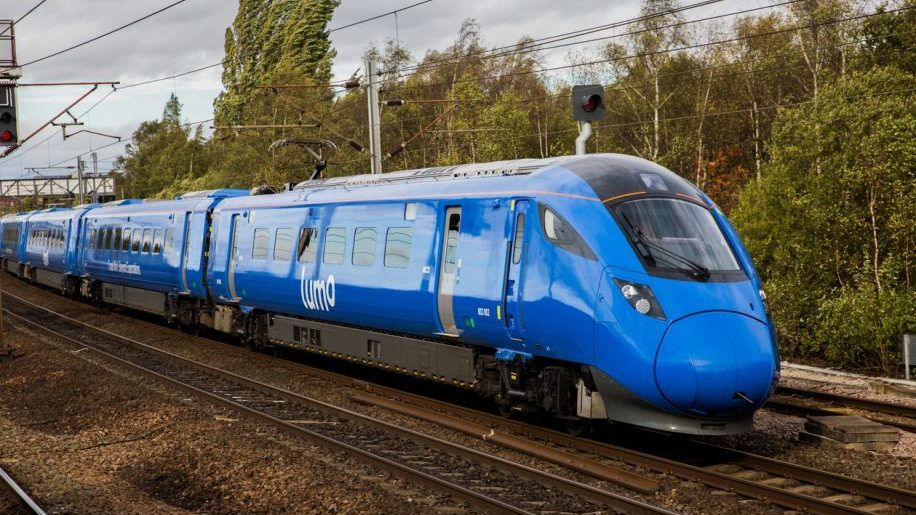
Money and politics create barriers for open-access rail operators, but their existence offers significant passenger advantages.
In the UK we can thank the rail privatisation in the 90s for the development of ‘open-access’ operators. The idea behind open-access was to provide the incumbent train operating companies (TOCs) with some competition, and ultimately lead to passenger benefits.
But matters haven’t quite worked as intended, with open-access mainline operators still fairly rare. In the UK, this includes Grand Central, Heathrow Express, Hull Trains and Lumo.
Unlike TOCs, who pay the government hefty franchise fees, open-access firms must accept full commercial financial risk.
During the pandemic, the government offered billions of pounds to support TOCs under ‘emergency measures’ and keep the networks open. Unsurprisingly, many open-access operators were forced to cease operations during this period, with no such bail-outs available to them. Indeed, the pandemic forced Grand Central to abandon plans to operate Blackpool-London Euston down the West Coast Main Line (WCML).
Unique selling point
Open-access firms must prove they can offer something different for the right to compete.
On the East Coast Main Line (ECML) railway, the incumbent London North Eastern Railway (LNER) faces competition from Grand Central between West Yorkshire and the Northeast to London. Then there’s Hull to Kings Cross with Hull Trains. These open-access operators serve areas or stations which, in most cases, are not served by incumbents, hence gaining operator rights.
Perhaps more interesting is Lumo, which offers the flagship London-Edinburgh route. In this case, Lumo sets itself apart by being the first UK rail firm to model itself after the LCC (low-cost carrier) airline business model, and was granted its licence based on offering a different product that would also compete with LCCs. Lumo’s stopping points when it heads north include Stevenage (not too far from Luton and Stansted) and Morpeth (close to Newcastle airport).
Why do open-access operators have to prove such a point of difference? This relates to the “hefty franchise fees” I mentioned earlier. One need only look at the ECML. The government considers this a prestigious route and expects bidders to submit a generous offer.
Over the years, numerous ECML operators have had to hand back the keys because they found the fees unaffordable, including Great North Eastern Railway (GNER) and National Express East Coast (NXEC). Naturally, any TOC that has paid the government a hefty fee for the right to secure a franchise wouldn’t want competition.
Fair game
When an open-access firm launches a new route, they must prove that they are not reducing revenues for the incumbents, but rather, filling in important gaps. In 2021, prospective open-access firm Grand Union wanted to compete with Great Western Railway (GWR) between Cardiff and London, but its application was rejected owing to the “absolute level of abstraction.”
This decision was made in February 2021, when all TOCs financial situation were affected by the pandemic. A year later, the ORR approved Grand Union’s bid to compete against GWR, with a revised service that will operate Carmarthen-London Paddington. This route is set to launch at the end of 2024.
In 2021, Grand Union also applied to operate Stirling-London Euston over the West Coast Main Line. This would connect towns and cities along the WCML that currently have limited long-distance services. A decision from ORR is still awaited.
When Lumo launched services to Edinburgh, some readers wondered why Lumo did not call at either Peterborough or Doncaster. It’s a good question. And again it’s all about abstracting revenue from the incumbents. Both Peterborough and Doncaster are rail hubs that generate much traffic and revenue for LNER. Therefore, proposing services to such destinations would have jeopardised Lumo’s chances for approval.
What does the future hold for open-access?
Opinions from rail experts vary. There’s also a question over what will be determined by the Derby-based Great British Railways Transition Team (GBRTT), a planned state-owned public body that will oversee rail transport in Great Britain – whenever it gets going.
In October 2022, Transport Secretary Anne-Marie Trevelyan announced that the Transport Bill to launch the GBRTT would not be going ahead in the current parliamentary session. However, in a recent podcast, rail expert Christian Wolmar spoke to Anit Chandarana, lead director at GBRTT, who said he was “sanguine” the body would be approved in the current life of this government. We will have to wait and see.












